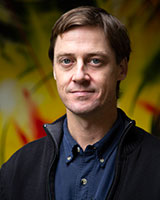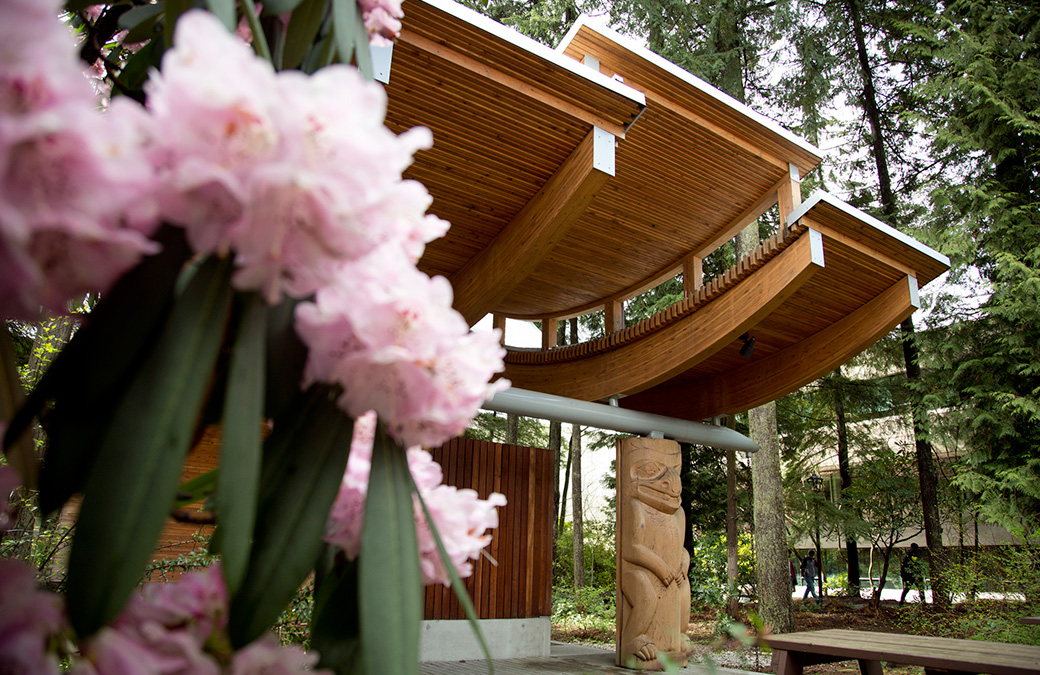BA (Hons), B.Ed., MA, PhD

Instructor
conradking@capilanou.ca
Education
PhD, Political Science, University of British Columbia, 2018.
MA, European Studies, University of British Columbia, 2008.
B.Ed., Intercultural and Environmental Education, Simon Fraser University, 2005.
BA (Honours), History, University of Toronto, 2003.
Bio
Conrad King (PhD, University of British Columbia, 2018) is a political scientist who researches public policy in developed countries, especially in the European Union.
Having received degrees from the University of Toronto, Simon Fraser University and the University of British Columbia, King currently holds a Post-Doctoral Fellowship with the Institute for European Studies (UBC), as part of the Near-EU international research consortium supported by a grant from the European Commission. An instructor at Capilano University since 2013, he has also served as Acting Chair of the Department of Political Science (2018-19).
King's primary area of research has been the internationalization of education. He has examined the effects of international comparative assessments on secondary school policy in Europe, as well as the internationalization of Canadian higher education. His research informs us about the power of the policy status quo and the political conditions needed for educational reform.
King has been a consultant for the BC Social Studies Teachers' Association, and assisted the Ministry of Education and Teachers' Federation in their development of a curricular framework for the new Political Studies 12 course at the secondary level.
Trying to understand power has always fascinated me. I am curious about how education can translate power through societies, and I am drawn to writers who discuss this, such as Aristotle, Rousseau and Bourdieu.
My teaching is inspired by John Dewey, who argued that a democratic and inclusive society is based on democratic and inclusive education. I want students to emerge from their formal education more active in civic life, better able to analyze problems and solve them collaboratively, with an understanding of moral or ethical reasoning behind different political values and uses of power, and a sense of their own capabilities.
I love seeing students grapple with thorny political puzzles and problems, and come away feeling empowered.
Publications
King, Conrad. Internationalisation of higher education in a Canadian context: Responses to the Bologna Process from Canadian universities. European Journal of Higher Education, forthcoming, 2019.
King, Conrad. Mental Models and the Europe 2020 Strategy: Neo-schumpetarian Ideas in Innovation and Education.? Review of Russian and European Affairs, vol. 7, no. 2, pp. 1-12, 2013.
King, Conrad. Book review: Democracy across Borders: From Dmos to Dmoi by James Bohman.? German Politics and Society, vol. 30, no. 3, pp. 115-18, 2012.
King, Conrad. The Europe 2020 Strategy and its implications for Canada. Policy Notes, Canada-Europe Transatlantic Dialogue, September 2012.
King, Conrad, Stefan Gnzle and Stefan Meister. Higher Education in Kaliningrad.? Adapting to European Integration? Kaliningrad, Russia and the European Union, edited by Stefan Gnzle, Guido Mntel and Evgeny Vinokurov, Manchester University Press, 2009.
King, Conrad, Stefan Gnzle and Stefan Meister. The Bologna Process and Its Impact on Higher Education at Russia?s Margins: The Case of Kaliningrad.? Higher Education, vol. 57, no. 4, pp. 533-47, 2009.
King, Conrad. The Bologna Process: Bridge or Fortress? A Review of the Debate from a North American perspective. The Canada-EU Bridge Project. CCGES/York University, 2006.
King, Conrad. Europe-Canada Mobility Project: 2003-2006. Report for Human Resources Development Canada. Department of Education, Simon Fraser University, 2006.
Presentations
2018: Designing survey instruments for measuring internationalisation: perspectives from Canada, New Zealand and Singapore. Internationalisation and Economic Development in the European Higher Education Area and Beyond: strategies, policies and tools. Pireaus, Greece, June 14-15.
2018: Unity and Diversity in Higher Education: Effects of Europeanization on Canadian Universities. European Community Studies Association Conference. Toronto, May 9-11.
2018: The Internationalization of Canadian Higher Education: which direction are we heading? British Columbia Political Studies Association Conference, Kamloops, May 3-4.
2017: Internationalization of higher education in a Canadian context. Responses to the Bologna Process from Canadian universities. ?Looking Out?: Comparability and Compatibility in Global Higher Education, Near-EU Jean-Monnet Network Conference, Ljubljana, Slovenia, October 9-10.
2017: The Bologna Process: A View from the Outside. Ben-Gurion University?s Bologna Training Centre Annual International Conference. Tel Aviv, Israel: April 25-26.
2016: Examining Active Learning Techniques: When are Simulations Effective? Teaching and Learning Conference, American Political Science Association, Portland: February 12-14.
2015: Policy Learning across the EU: The Politics of Education Reform in Germany and France. European Consortium for Political Research General Conference, Montral: August 26-29.
2015: Policy Learning across the EU: The Politics of Education Reform in Germany and France. Council for European Studies Conference, Paris, July 8-10.
2013: Challenges for Innovation in Europe. Europe Day, Vancouver, May 9.
2012: Mental Models and the Europe 2020 Strategy: Neo-Schumpetarian Ideas in Innovation and Education. European Community Studies Association Conference, Ottawa, April 26-27.
2010: Higher Education Policy Regimes: Policy Design for Germany and the United Kingdom. European Community Studies Association Conference. Victoria, April 30 ? May 1.
2009: A Failure of Harmonization: EU Directives, Spanish Legislation, and the Education of Roma in Andalusia. Law without Borders (UBC Law Conference), May 21-22.
2008: Higher Education in the Russian Exclave of Kaliningrad. Canadian Political Science Association conference, Vancouver, June 4.
2008: Solving complex real-world problems: an issue-based interdisciplinary approach. Celebrate Research Week at UBC, Vancouver: March 10.
